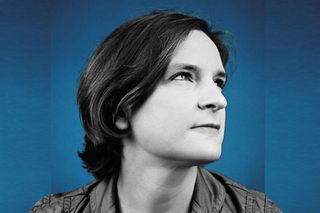
Indian Media, Esther Duflo Is Not ‘Wife of’; She’s a Nobel Laureate in Economics
The reporting choice exemplifies how we devalue women’s achievements by crediting their accomplishments and identities to the men in their lives.

Yesterday the Nobel Committee announced the winners for the 2019 Nobel Prize in Economics: Abhijit Banerjee, Esther Duflo, and Michael Kremer.
And yesterday, the news was relayed to the world via several major media outlets thusly:
“Indian-origin Abhijit Banerjee, wife Esther Duflo awarded Nobel Prize in Economics” — Hindustan Times
“Indian-American MIT Prof Abhijit Banerjee and wife wins Nobel in Economics” — The Economic Times
“Indian-American Abhijit Banerjee, wife Esther Duflo and Michael Kremer win 2019 Nobel Economics Prize” — FirstPost
“Indian-American MIT Prof Abhijit Banerjee and wife Esther Duflo win Noble prize in Economics” — Business Insider
The reporting choice seems more suited to the age of Marie and Pierre Curie, and yet, here we are in 2019. Yes, Duflo happens to be married to her co-recipient, Banerjee. But contrary to the implication conveyed by mentioning her wife-status in a headline, that is not why she won her prize.
Esther Duflo is widely considered one of the greatest minds in development economics, revolutionizing it by pioneering an experiment-based approach to problems of poverty, such as child health and education access. Her effect, along with the work of Banerjee and Kremer, within development economics is credited for helping to transform the field of economics as a whole, bringing a previously theoretical discipline down to Earth and rooting it in reality. Her influence means that policy is more rooted in scientific data, rather than elite assumptions, about the lives of the world’s poor, and that the impact of policy can be measured. She is the director of MIT’s Abdul Latif Jameel Poverty Action Lab (J-Pal), a premier poverty research institution. She is a 2010 recipient of a MacArthur genius grant. She is the youngest recipient in the 50-year history of the Nobel economics prize.
In other words, Esther Duflo is Esther Duflo. The fact that she is the wife of anyone is incidental to her many achievements.
Related on The Swaddle:
It Took a Nobel Prize for a Female Scientist to Be ‘Notable’ Enough for Wikipedia
One could argue that it’s natural for the media of a recipient’s native country to look for the angle that is catchiest; Banerjee, born in Mumbai in 1961, and educated in Kolkata and Delhi before moving to the U.S. to pursue his Ph.D. at Harvard University, is from India originally — hence, why his name has dominated the headlines here. This does make sense — however, there are many ways to accomplish this angle without reducing Duflo to merely his wife:
- mention only Banerjee in the headline
- mention Banerjee and “two others” in the headline
- mention all three recipients by name in the headline
It’s noteworthy that in France, Duflo’s country of origin, her name naturally dominated headlines, following one of these three conventions. Nowhere did a French headline read “Duflo and husband.” Few global outlets thought it relevant to mention her marital status, let alone that she and Banerjee are married.
In 2019, women’s accomplishments, even at the highest level, are still not their own. The biggest accomplishment Esther Duflo has made, in the eyes of many Indian media outlets, is marrying Banerjee — after which, any subsequent achievements became his, though his, naturally, have not become hers. It’s an experience many women know only too well. In early 2019, for example, author Tabitha King was identified only as the wife of author Stephen King in an Associated Press headline: “Stephen King, wife give $1.25M to genealogical society.”
“The gift was her original idea, and she has a name: TABITHA KING,” Stephen King posted to Facebook at the time. “Wife is a relationship or status,” said Tabitha King in the statement Stephen King shared. “It is not an identity.”
In smaller circles, in the groups that make up our family and friends, women’s accomplishments, big or small, are couched as secondary, as something husbands’ have “let” or “encouraged” them do, pivoting focus to the man’s indulgent support as the real laudable action. What a guy. He deserves a (Nobel) prize.
This mindset may seem backward when set down in cold print but its tangible consequences can be seen at even the highest intellectual levels: Duflo is only the second woman in the history of the economics prize to receive this honor. In the history of the Nobel Prizes more broadly, only 5% of honorees have been women. Until we start viewing women as more than simply the wife of a more important man who deserves to be named first, or solely, we can never hope to view their accomplishments with the same respect — and never hope to see that number rise to 50%, where it should be. The Swaddle wrote in an editorial last week that the Nobel Prize, for this precise gender disparity, is at risk of becoming outdated. Dishearteningly, it looks like it’s right at home in the here and now.
UPDATE: Since publication, The Economic Times has updated its headline to read: “Abhijit Banerjee, Esther Duflo and Michael Kremer win Nobel in Economics.”
Liesl Goecker is The Swaddle's managing editor.
Related


Study: Helping Pregnant Colleagues With Work Might Demoralize Them
